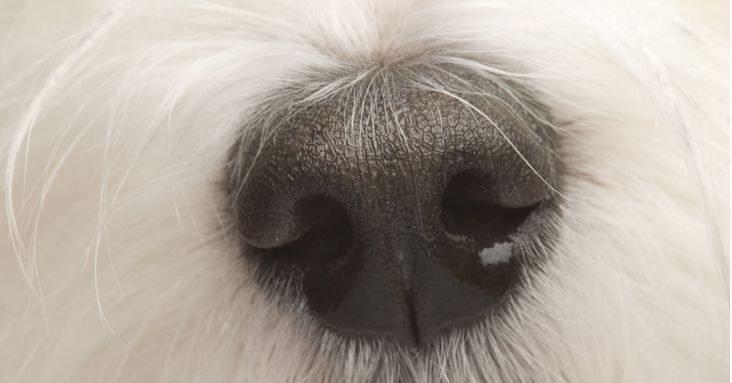The Power of Smell: Unveiling a Path to Wellness

Think of the aroma of a just-peeled mandarin, or freshly baked apple pie. It’s not just the intense, tangy fragrance of the fruit, or the allure of crisp apple, mouthwatering cinnamon and the melt-in-the-mouth crust of a homemade apple pie. These aromas have the power to transport you back in time to the thrill of opening your first grade lunch box, or tea with Grandma. This is because smell is so often a shortcut to memory and emotion.
Respect for our sense of smell has undergone a renaissance in recent years. For centuries, it was seen as a kind of poor relation among the senses helping us experience the world. Philosophers like Plato and Kant associated it with basic human urges. They felt it was inferior to senses like vision and hearing which brought people into the higher realms of music and math. Kant called it the most ungrateful and dispensable sense.
But more recently, smell is celebrated as a window into our emotions. And one that’s delicately woven into our memories. “Memories and emotions are intricately tied to smell, and the olfactory system plays an important though largely unrecognized role in emotional well-being”, explains Dr. Sandeep Robert Datta, an associate professor of neurobiology at Harvard Medical School.
The perfume industry knows that smell is highly emotive. Perfumers are busy creating ambrosial blends striving to convey complex feelings from vitality to empowerment. Retail strategists too are aware of the power of giving entering customers a whiff of a positive scent. Aromatherapy also taps into this connection to enhance wellness.
Sunday Bath Blends: Frankincense to calm the mind and soothe the skin, marjoram to feel the support of the universe and calm blood pressure, cedarwood to hold on hold on hold on. Blend element: Earth #marsintaurus Hang in there for the week to come. #aromatherapy pic.twitter.com/2ufwqadhzf
— Pey (@msiagirl) February 7, 2021
Studies show that the human sense of smell is more sophisticated than we thought. John P.McGann, for instance, has published a paper in Science entitled “Poor human olfaction is a 19th-century myth.” For McGann, our olfactory abilities put humans “in the middle of the pack” among mammals. He suggests humans are more sensitive than rodents and dogs to some scents. He documents that humans are capable of tracking odor trails and that our behavioral and emotional states are influenced by our sense of smell.
Another study in Nature hones in on the unit of measurement in smell studies called the “Just Noticeable Difference” to show that humans are actually talented at differentiating between smells.
The science of smell has also shown that smell loss can be an early warning sign for neural diseases like Parkinson’s and Alzheimer’s. And it is common knowledge that a diminished sense of smell is a telltale symptom of COVID-19.
To appreciate the growing interest in our little-explored sense of smell and the linked sense of taste, just look at the range of specialists focusing on it. These include virologists, cognitive and food scientists, linguists, psychologists and geneticists. This also shows how complex the interplay of smell, taste and our lives is.
Sissel Tolaas is a Berlin-based artist and scientist who has dedicated her life to understanding our sense of smell as a route to comprehending our world and each other. Tolaas is critical of what she sees as the scent-deprived “blandscapes” of our hygiene-conscious society, and of our overreliance on visual cues. She is nostalgic about the times when cities and people offered “olfactory maps”. These, she believes, allowed people to find their way in their environment though their sense of smell.
View this post on Instagram
Tolaas has created a “Library of Smells”. This features thousands of different smells from around the world in an attempt to learn the alphabet of smells and smelling. She understands that cultural norms as well as subjective experience are part of the mix. For instance, people growing up with lemon-scented cleaning products will probably associate this citrus smell with cleanliness.
In Tolaas’s own words: “My work is all about making systems of smells as bases for communication. These systems can be used for the purposes of navigation, education, design, architecture, health care, and attention to the environment.” Tolerance, even.
The current pandemic, with the sudden loss of a sense of smell found to be a key marker of COVID-19 infection, has thrust this sense into the spotlight. People affected feel disconnected from the world. They also worry about their inability to sense mundane things like dirty clothes or potential threats such as rotten food or a gas leak.
Thankfully, hubs like Fifth Sense or Facebook support group, Abscent, offer them a comforting refuge. Here, people suddenly stricken with Anosmia (the loss of their sense of smell) or Parosmia (a distorted perception of smells) trade experiences and tips. Many have shared the welcome return of their sense of smell.
The talk is of solutions as well as sharing. Fifth Sense has just launched a survey inviting anyone affected to share their pressing questions with medical researchers. They already offer a toolkit of Smell Training Resources to help people recover their sense of smell. Behind these is the idea, backed up by scientific research, that spending time sniffing aromas like rose and eucalyptus in rotation, will potentially improve their ability to detect them.
YOU MIGHT ALSO LIKE:
5 Essential Oils That May Increase Happiness
A Smell Test for Parkinson’s Could Lead to Earlier Detection
7 Essential Oils for Every Mood